The YST Times
Orchestral Institute: One Always Returns






Saturday, 7 October 2023, 7:30pm

Conservatory Concert Hall
Yong Siew Toh Conservatory of Music
Conductor Jason Lai YST Orchestral Institute T’ang Quartet
YST Orchestral Institute
with
JASON LAI, principal conductor
T’ANG QUARTET, ensemble-in-residence


SCHOENBERG
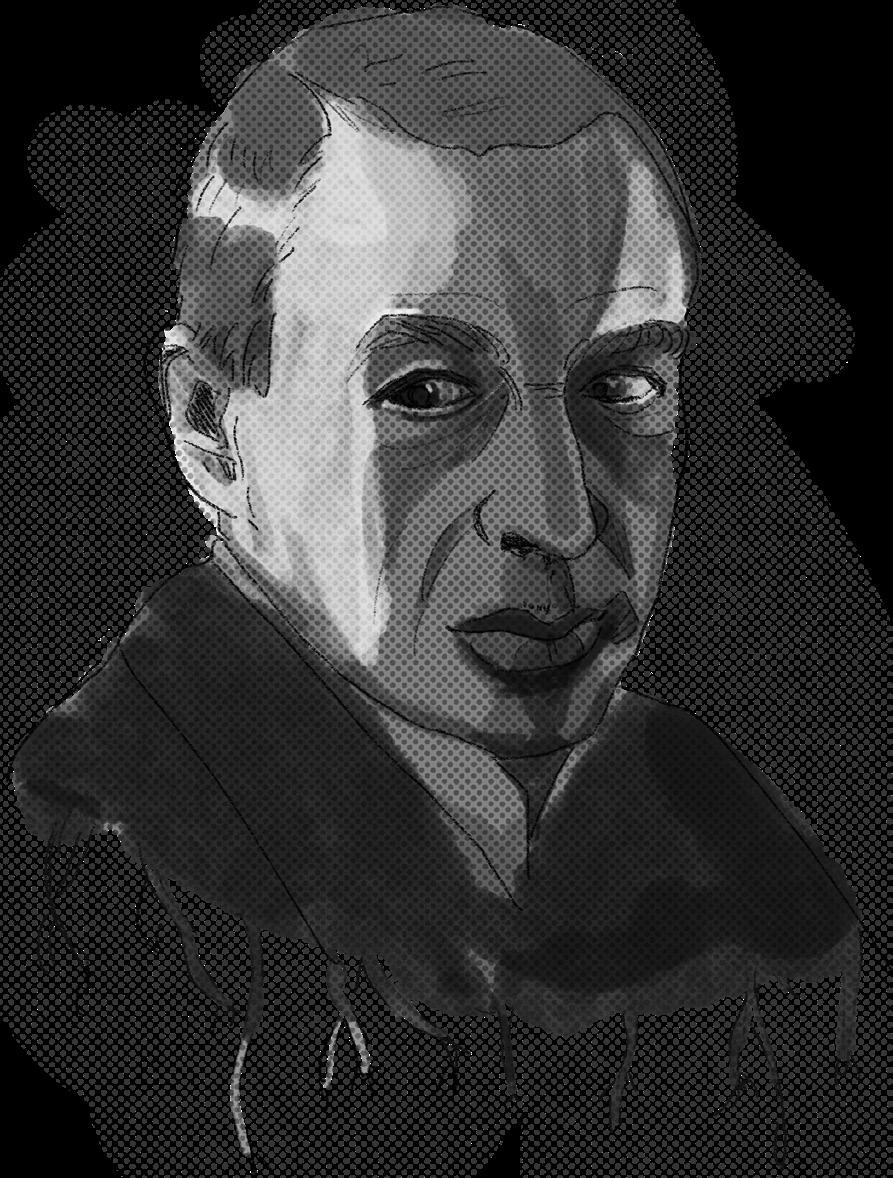
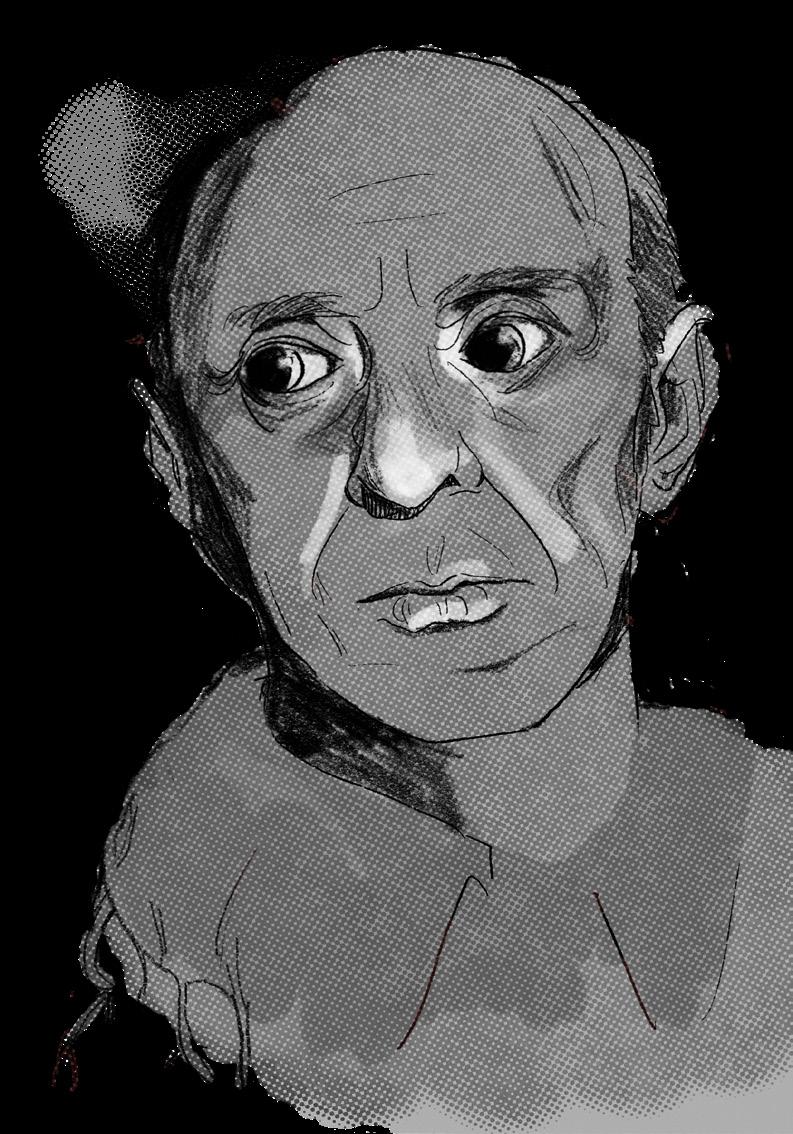
Concerto for String Quartet & Orchestra (After G. F. Handel)
I. Largo - Allegro
II. Largo
III. Allegretto grazioso
IV. Moderato
RACHMANINOFF
Symphonic Dances, Op. 45




I. Non allegro
II. Andante con moto (Tempo di valse)
III. Lento assai - Allegro vivace
Programme
Brett Stemple Vice Dean’s Message
One must have past epochs contained within the creative self,not only for the sake of culture, but also out of an obligation to continue the ideas.
 - Arnold Schoenberg
- Arnold Schoenberg
Welcome, and thank you for joining us in the second concert of YST’s 2023-24 Orchestral Institute Series: One Always Returns showcasing the music of Arnold Schoenberg and Sergei Rachmaninoff. Through the two works presented tonight, each in their unique way, these composers endeavoured to reconcile their present by returning to the past.
With Arnold Schoenberg’s Concerto for String Quartet and Orchestra, we feature the T’ang Quartet, YST’s Ensemble in Residence, collaborating beautifully alongside the students of the Orchestral Institute. Schoenberg, who had boldly established the Second Viennese School – and the atonal music associated with it – in the first quarter of the twentieth century, surprisingly turned to a neoclassical style with his reimagining G.F Handel’s Op. 6, No. 7 concerto grosso. In so doing, the composer confronts the music of one of the fountainheads of the German classical-music mainstream on its own turf.
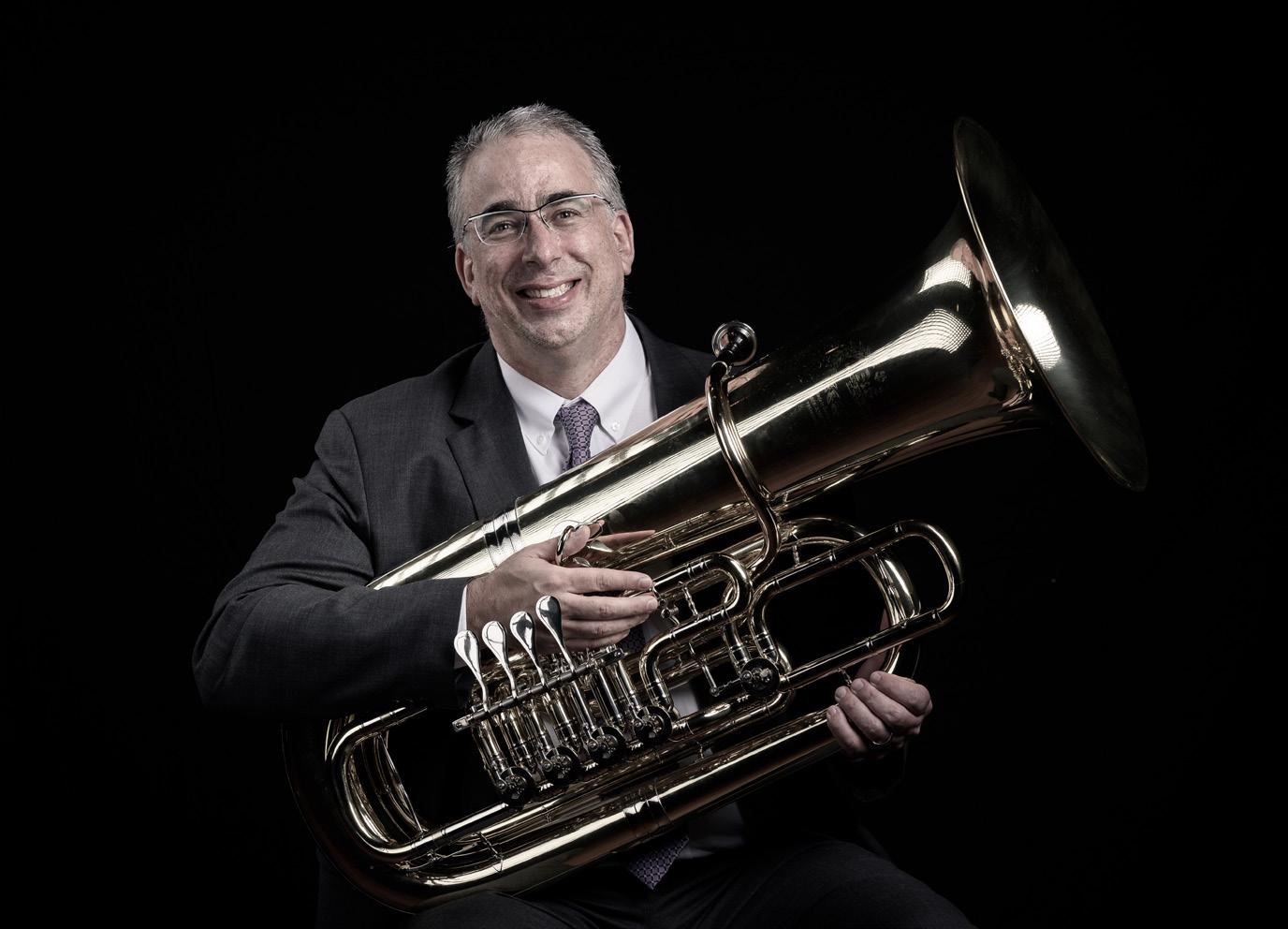




Brett Stemple
Vice Dean’s Message

As you listen to Schoenberg grapple with the Handelian tradition he seeks to embody, it’s crucial to remember that he composed this piece in the summer of 1933, mere months after Adolf Hitler and his Nazi party ascended to power, a development that forced Schoenberg to leave a cherished lectureship in Berlin. Despite feeling perpetually estranged from the cultures and milieus he was helping reshape, Schoenberg couldn’t resist revisiting the baroque roots of those very traditions. While this return brought a sense of indebted joy, the lurking undercurrent of fear and sarcasm is never far from the music’s surface.
Driven similarly by wars, politics, and personal circumstances, both Schoenberg and Rachmaninoff, emigrated to the United States, both eventually finding their home in Los Angeles as part of a World War II diaspora of European artists and thinkers. While Schoenberg’s return to the past was rooted in cultural aesthetics, Rachmaninoff’s was deeply personal.
In his 1940 Symphonic Dances, Op. 45, Rachmaninoff returns to his own musical past, drawing liberally from his earlier compositions. Particularly noteworthy is the inclusion, at the end of the first dance, of material from his Symphony No. 1, which had, at the time, yet to be published due to its disastrous premiere half a century earlier, in his Russian homeland. Most poignantly, the composer reflects upon mortality and the ephemeral nature of being, climaxing in a finale which combines songs of death and resurrection into an apotheosis that leaves us reverberating with the timeless flowing-resonances of a tolling gong.




As the YST Times reports, “One Always Returns”!
Associate
Professor
Brett Stemple Vice Dean (Ensembles, Research & Professional Awareness)
Yong Siew Toh Conservatory of Music ABOUT


Inspirational life-affirming music-making is at the heart of the Yong Siew Toh Conservatory of Music at the National University of Singapore. Centred in one of the world’s most dynamic countries, the Conservatory is uniquely placed to offer a distinct and powerful contemporary Asian voice.
Founded in 2003, YST quickly established a reputation as Asia’s most exciting international conservatory by bringing together a worldclass faculty and facility to develop excellence in instrumental performance and composition. Building on this strong foundation, the Conservatory has evolved over the past two decades to become one of the world’s most distinctive music schools, diversifying its offerings and continually seeking to connect authentically with its surrounding community. Specialisations added subsequently include Voice, Audio Arts & Sciences, Conducting, Music & Society and Music, Collaboration & Production. Alongside students from Singapore, the Conservatory community is internationally diverse, with representation from over 20 countries and five continents.
Keenly focused on nurturing identity as a driver for excellence, YST’s Bachelor of Music programme offers full financial support for all its undergraduate students, enabled by major gifts from the Yong Loo Lin Trust. The Conservatory’s continum of offerings further includes Master of Music and Master of Music


Leadership degrees, NUS- facing Second Majors, Minors and modules, Continuing Education & Training courses for adult learners, and a Young Artist programme. We host a vibrant performance calendar with around 200 concerts annually, featuring students and faculty alongside international artists and ensembles.
Our community engagement and professional integration programme has extensive local, regional and global reach. Students are supported to find their own artistic pathways through exchanges, festivals, competitions and projects. More broadly, our international networks and partnerships further enhance the educational experience and ensure our continued evolution.

YST Orchestral Institute
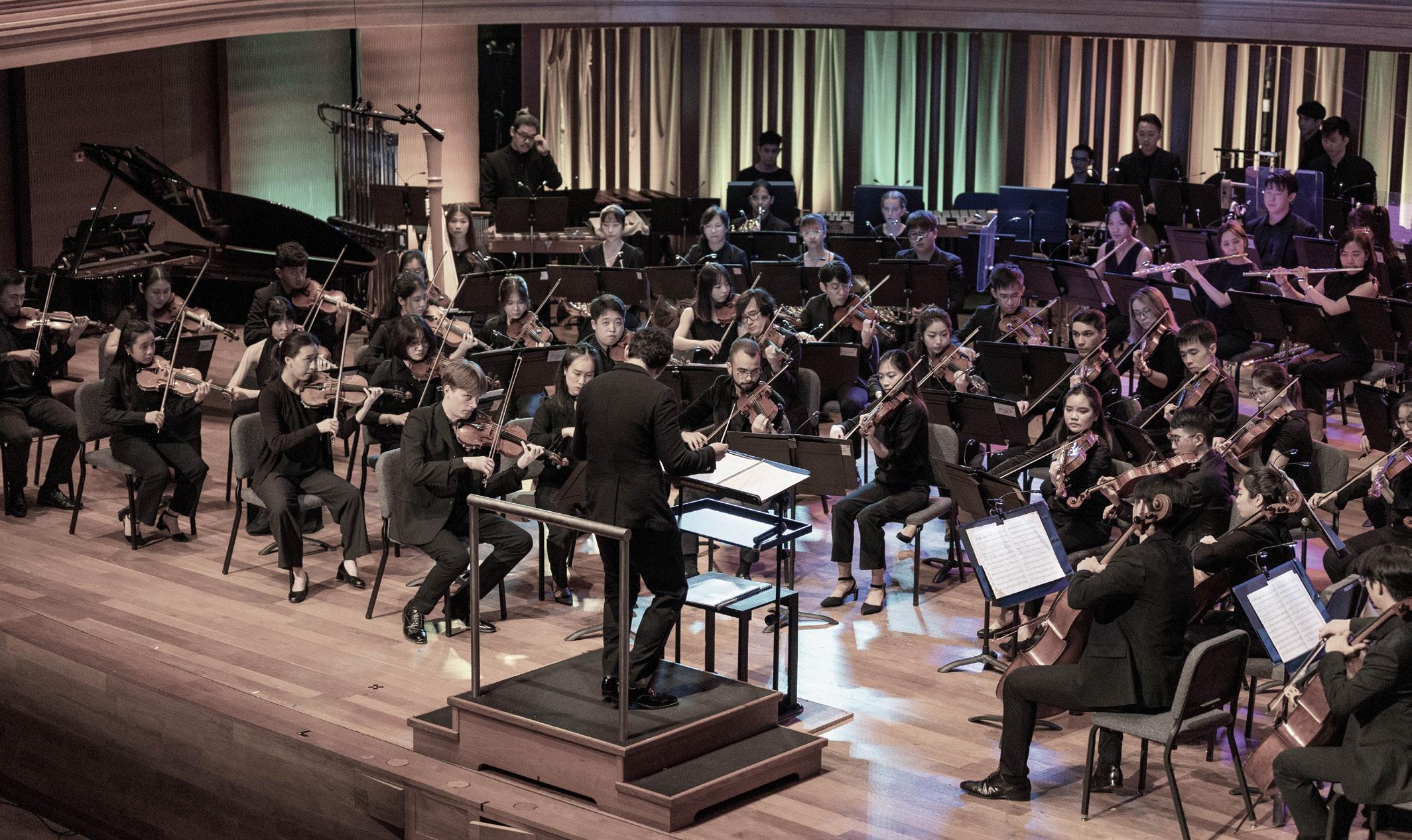




ABOUT
The YST Orchestral Institute is a creative musicians’ laboratory, designed as an innovative forum for conservatory-level orchestral training. First conceptualized in 2018 by former YST Dean, Prof. Bernard Lanskey, as a way of revitalizing learning and teaching systems within a large ensemble context, the Orchestral Institute has emerged as a dynamic platform in which aspirational orchestral musicians work collaboratively alongside professionals drawn from Conservatory faculty, staff, and alumni, as well as YST partner institutions, from Southeast Asia and beyond.

YST Orchestral Institute ABOUT





Pioneering interdisciplinary programming, a unique production style, collaborative-composition creation, musician health & well-being, and an open-dialogue approach to rehearsing are all hallmarks of the Orchestral Institute approach – a philharmonie philosophy which seeks to create a safe ‘play-space’ emphasizing creativity, mutual learning, and skills development appropriate for large ensemble music- making, with the ambition of enabling musicians to be even more open, daring, questioning, collaborative and passionate about the music they make together.
Currently under the leadership of YST Conservatory Principal Conductor, Jason Lai; Vice Dean of Ensembles, Brett Stemple; OpusNovus Conductor (and YST Artist Fellow), Dr Lien Boon Hua, and Orchestral Manager, Yap Zi Qi; and working alongside Conservatory students, faculty, staff, and YST Artist Fellows – the Orchestral Institute has created and curated a number of groundbreaking orchestral productions including Telling Beyond Words (2019), and – despite the global pandemic– Springs of Uncertainty (2020), Lichtbogen (2020), Landscapes of Souls (2021), Transfigurations (2021), Dream for Future (as part of SoundBridge Music Festival 2021) and a special collaborative family concert with the Kids’ Philharmonic, Symphonies Simple and Philharmonic Friends (2021), among others, many of which are available for viewing at the YST Conservatory’s YouTube channel.
Jason Lai Principal Conductor

Jason Lai is the Principal Conductor of the Yong Siew Toh Conservatory Orchestra and former Associate Conductor of the Singapore Symphony Orchestra and has been a prominent figure in Singapore’s musical life since he settled in the country in 2010.
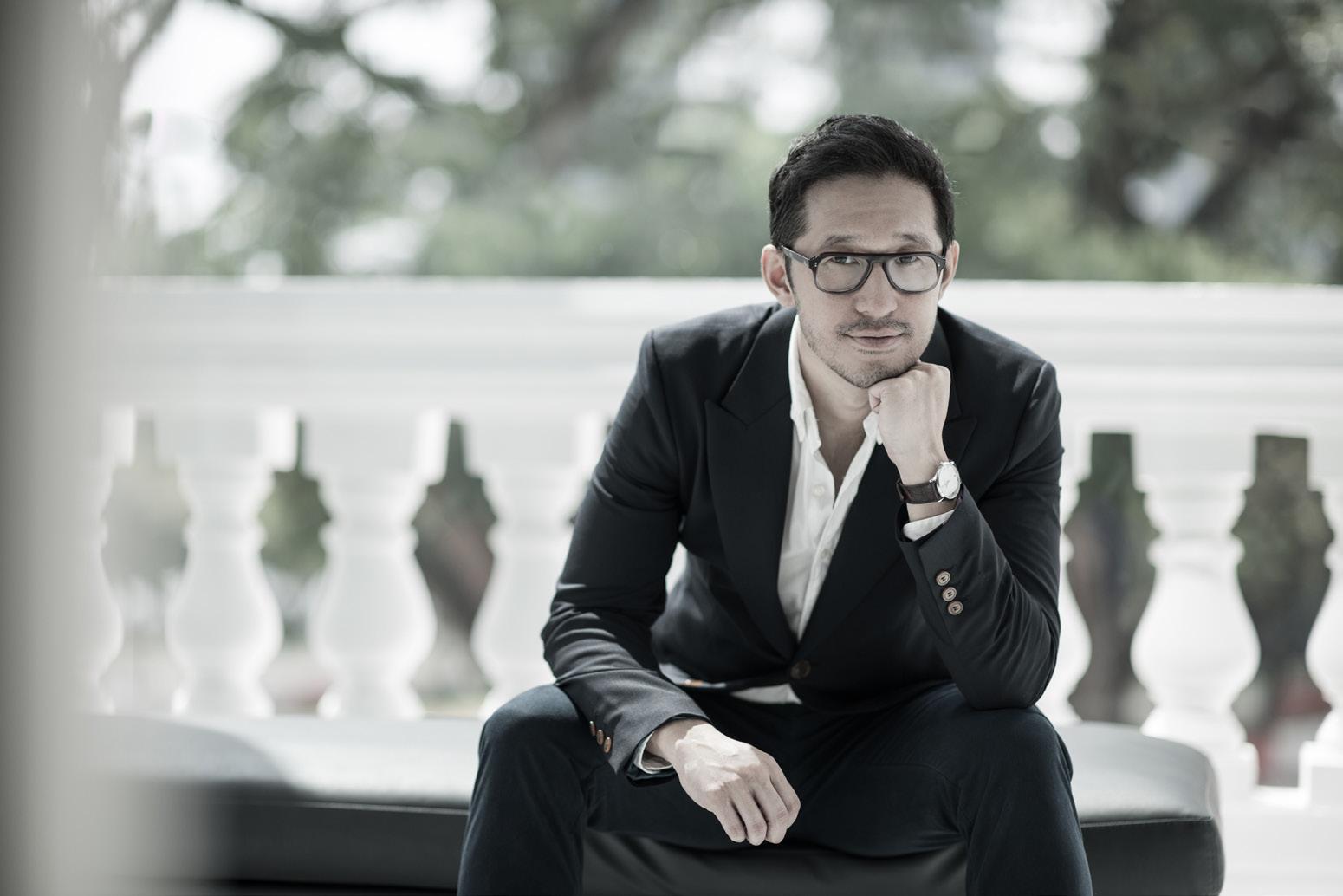


Intent on broadening the appeal of classical music to audiences who would not normally think of going into a concert hall, Jason is also building a unique reputation as a communicator with mass appeal through his television appearances in both the UK and Asia. He has frequently appeared on BBC television as a judge in both the BBC Young Musician of the Year competition and the classical talent show “Classical Star”. He reached his widest audience when, as a conducting mentor in the series “Maestro”, his celebrity student, the popular comedienne Sue Perkins, won with a nail-biting final in front of the BBC Concert Orchestra and a live studio audience. Other BBC television appearances have include “How a Choir Works” and “The Culture Show”. Jason also starred in “Clash” for the children’s television channel, CBBC.


Jason Lai
Principal Conductor

Since settling in Singapore he has continued with his television work. He was presenter and conductor for “Project Symphony”, an eight part series for Okto where he was filmed setting up a community orchestra. This year he has been heavily involved filming for a BBC series “Heart of Asia” which explores the contemporary arts and culture scene in Thailand, Indonesia, Korea and the Philippines, and a further series for BBC World called “Tales from Modern China”.
Jason’s roots lie in Hong Kong but he was born in the UK and was a pupil at the prestigious specialist music school in Manchester, Chetham’s, where he studied cello. At Oxford University he studied both cello and composition, and went on to the Guildhall School of Music and Drama in London where he was awarded a Fellowship in Conducting.




Despite having toured as a cellist with the Allegri String Quartet and having been a finalist in the BBC Young Composers Award, Jason gravitated increasingly towards conducting after he won the BBC Young Conductors Workshop in 2002. This led to his appointment as Assistant Conductor to the BBC Philharmonic with whom he made his BBC Proms début in 2003. Following his work with various British orchestras, he was appointed Artist Associate to the Hong Kong Sinfonietta and became their Associate Conductor in 2009. Jason most recently had debuts with the Adelaide Symphony and Macau Orchestra and made return visits to conduct the Hong Kong Sinfonietta and Orchestra of the Swan.
Education is an important part of Jason’s work in Singapore. At the Yong Siew Toh Conservatory he trains the next generation of conductors, many of whom have had many successes both at home and abroad, and with the SSO he spearheaded the education and outreach programme, helping the orchestra reach new audiences notably through his Discovering Music and Children’s concerts.
T’ang Quartet

Ensemble-in-Residence
Constant innovation and steady reinvention is the name of the game for the T'ang Quartet. For 30 years, the group's musical dexterity has surprised and delighted audiences locally and globally. Based in Singapore, T'ang Quartet is one of the best known and most accomplished string quartets in Asia.
The name "T'ang" symbolises the golden age of cultural expression of the Tang Dynasty, an acknowledgement of their Asian root – also a playful reference to the last names of the present and former founding members.
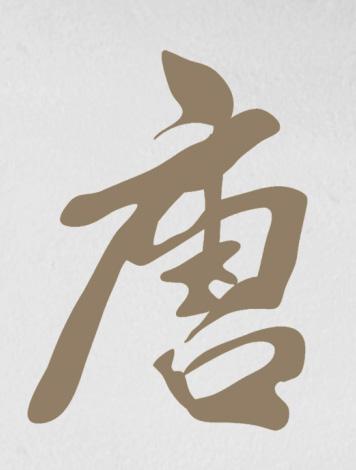
What started out in 1992 to break new ground in the sharing of classical music to a larger audience has grown exponentially. The T'ang Quartet's creative output is a tight, stylist blend of East and West, seamlessly reinterpreting classical work for contemporary fans while appealing to traditional audiences.




T'ang Quartet – also Quartet-In-Residence at the Yong Siew Toh Conservatory of Music – has collaborated and performed with contemporaries & friends such as John Chen, Fringin Collins, Noriko Ogawa, Tedd Joselson and more.
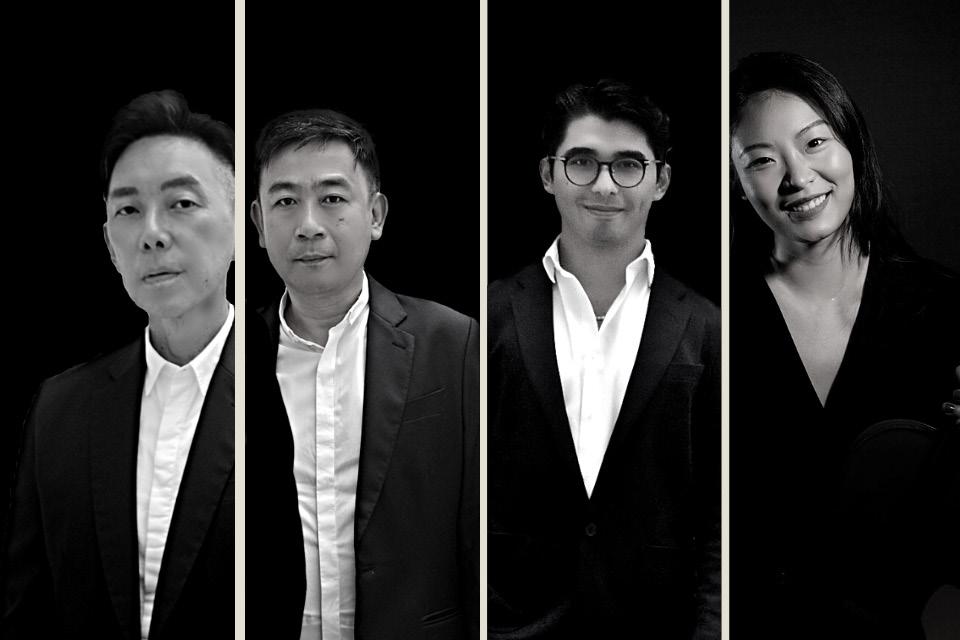
T’ang Quartet

Ensemble-in-Residence
The ensemble has performed in major venues around the world – Wigmore Hall (London), Seiji Ozawa Hall (Boston) and Berliner Philharmonie (Berlin). They have also performed in major festivals worldwide such as Tanglewood Festival, Melbourne festival, Edinburgh Festival and City of London Festival.
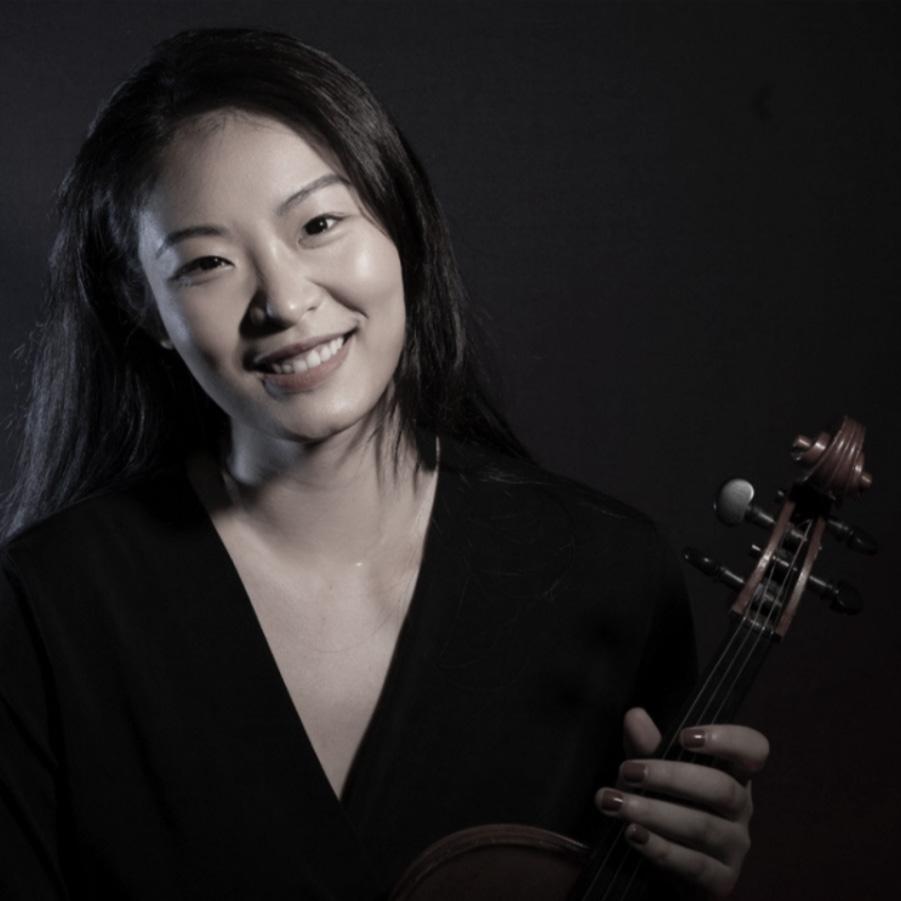
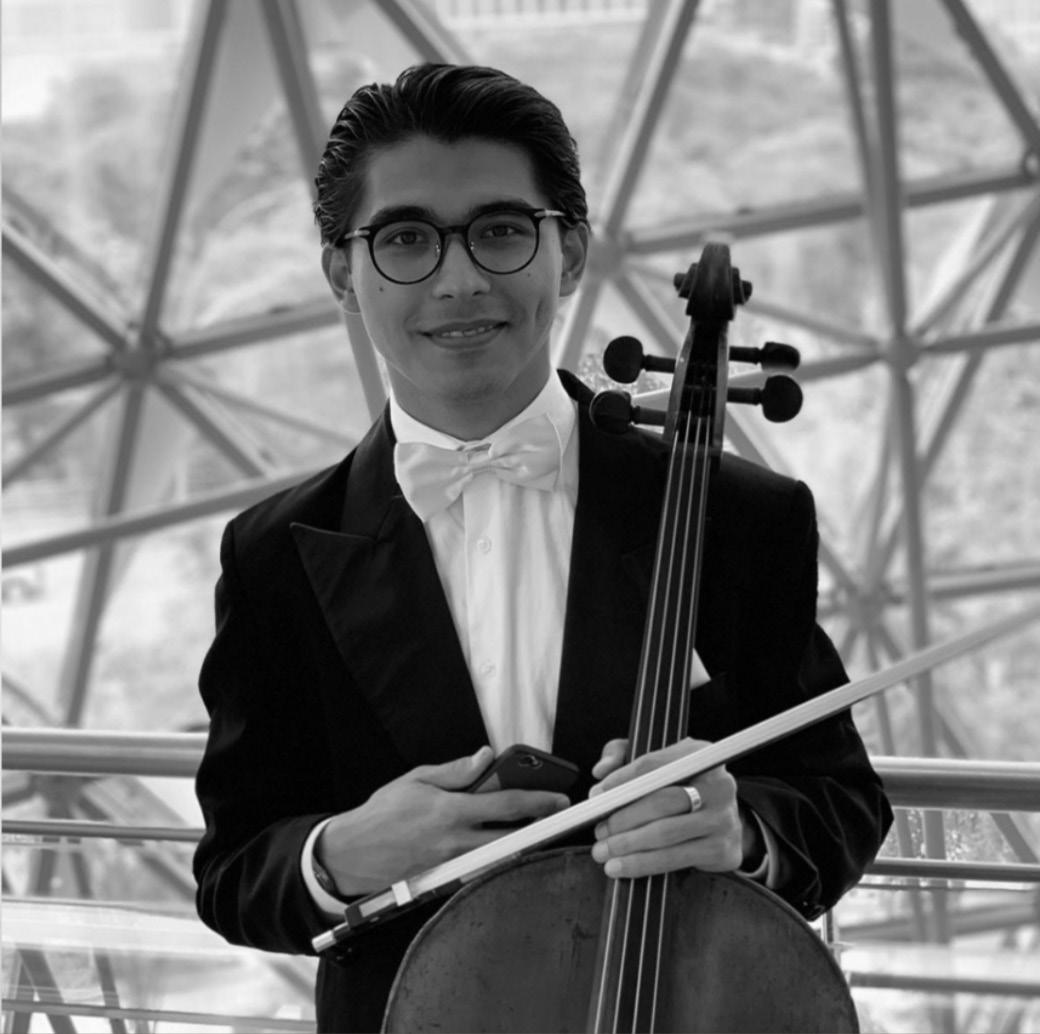



In 2022 and 2023, the ensemble celebrated three decades in music with four shows, including the world premiere of Give and take (Back and Forth) by composer Chen Zhangyi. T'ang Quartet is a registered charity under the Charities Act in Singapore. Support the quartet in their dedicated journey in public education as well as social and community causes.
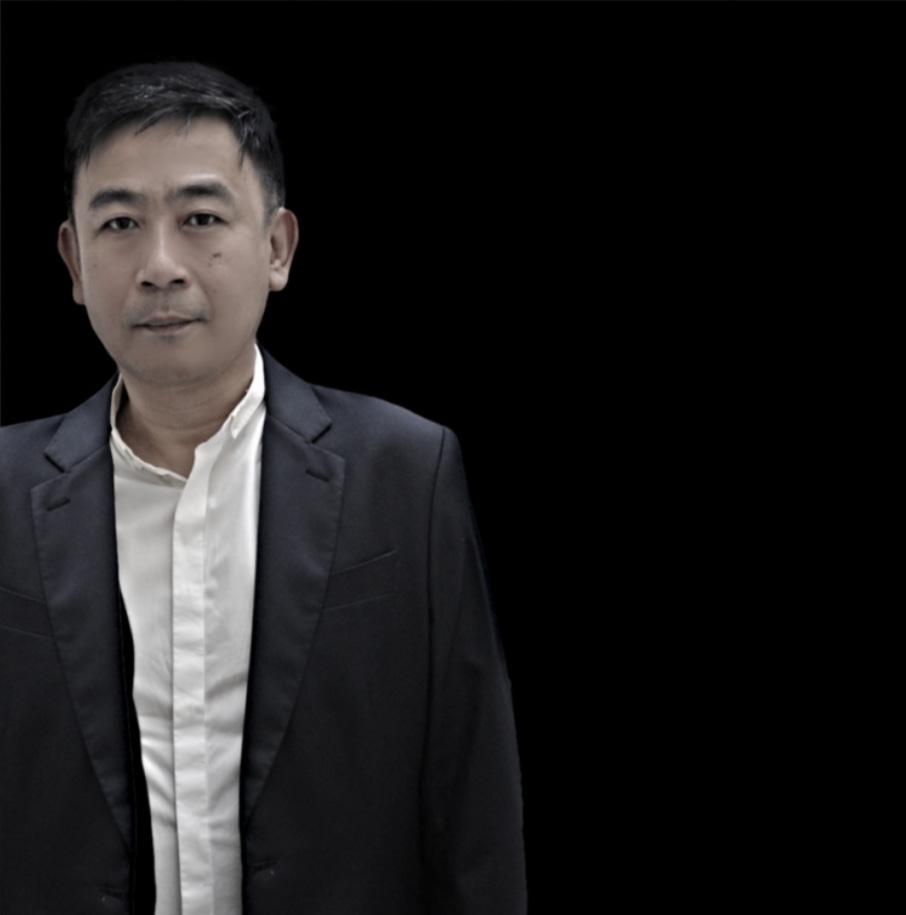
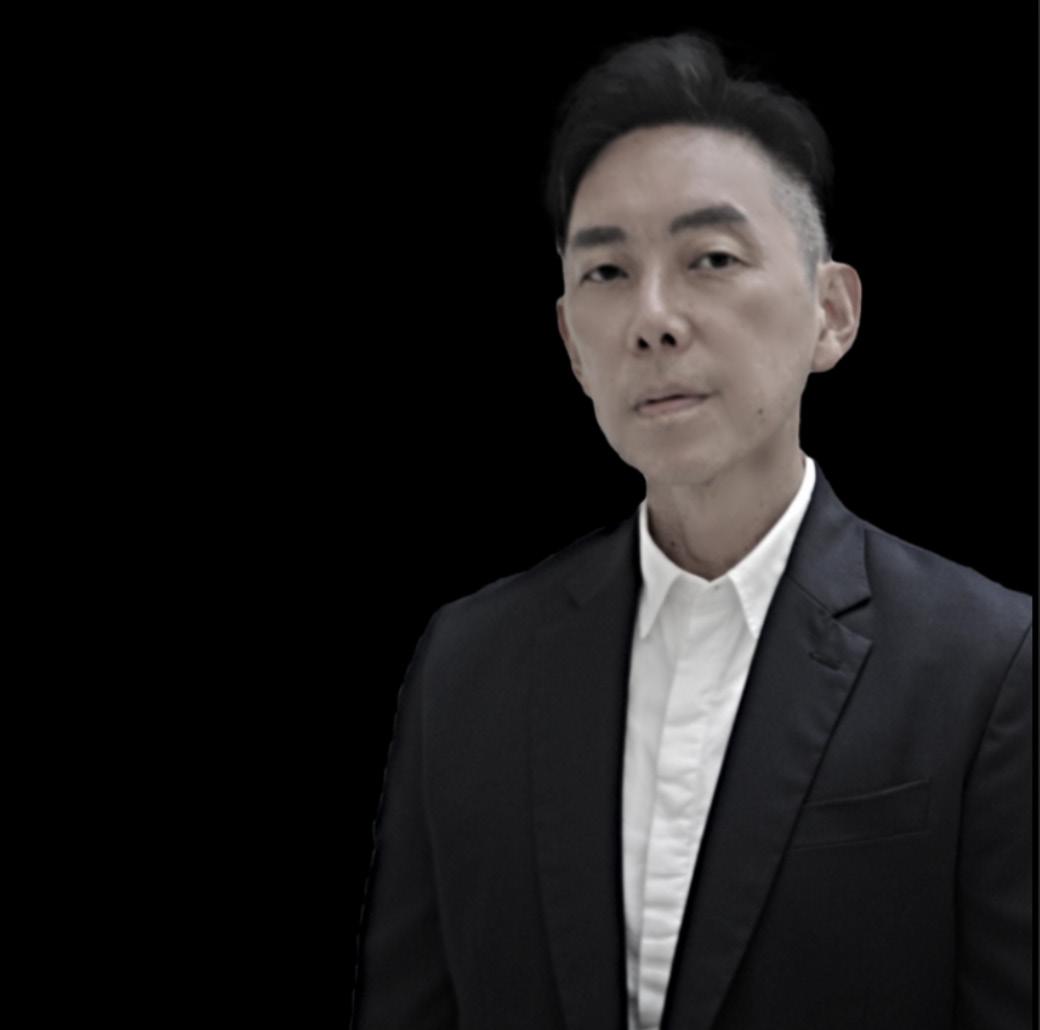
 Ng Yu-Ying, 1st Violin
Ang Chek Meng, 2nd Violin
Jamshid Saydikarimov, Cello
Dandan Wang, Viola
Ng Yu-Ying, 1st Violin
Ang Chek Meng, 2nd Violin
Jamshid Saydikarimov, Cello
Dandan Wang, Viola
“One Always Returns”
Interview with Jason Lai and T’ang Quartet

“I always find the most wonderful place to return to is the breath, always grounding, nourishing and calming. Works especially well before going on stage for a concert!”
-
Jason Lai
“I always return to the memories of how my mentor and dear friend Mr. Jiri Heger (ex-principle violist of SSO for more than 2 decades) has influenced me during my teenage years just before I went to UK for my undergraduate studies! One lesson he sat me down and made me listened to the slow movement of Mahler 5th, Adagietto and by the end I was in tears! Since that lesson I decided I want to be a musician and strive to move the audience with the Power of Music.”




-
Ng Yu Ying
“I usually go back to San Francisco to find inspiration where I studied and spent the most precious time in my 20’s.”
-
Dandan Wang
“Each returning on stage to perform is the inspiration for me. The hours of rehearsals and preparation is all about making sure we present the best version of the music. As I grow older, I am much more appreciative of the chance to perform, as you never know how much longer you can do it mentally and physically!”
-
 Ang Chek Meng
Ang Chek Meng
“Source of recharge and inspiration is my family. Spending quality time, having calm evenings and long walks, discovering with my wife new places, countries and cultures. That, unfortunately happens rarely lately because of busy schedule, but when it happens we really treasure it.”
- Jamshid Saydikarimov
Q: What’s something, or somewhere that you always return to for inspiration?”
Programme Notes

Schoenberg - Concerto for String Quartet & Orchestra
If every person’s life can be divided into two halves, the pre- and post-, 1933 marked that point for Arnold Schoenberg (1874–1951). In the decades leading up to 1833, he had steadily built towards a life and reputation for himself in his native Austria and Germany. At the age of 59, it seemed like he “had it all”—a stable family life, compositional productivity, and increasingly positive reception of his atonal works, and an appointment at the Prussian Academy of Arts in Berlin. This was an enviable position that allowed Schoenberg space for personal creativity and provided favorable salary. Everything seemed to be progressing swimmingly. Distant whispers of unrest and doom did not fetter his spirits significantly, until reality struck in the early months of 1933.
The Nazi Party has taken over Berlin—there was no shadow of doubt about that. As a Jew, it was no longer safe for Schoenberg to stay. With haste, he left for Paris with the family. One of the first things he did upon arrival was to convert from Christianity to Judaism. In a time of resurging anti-Semitism, Schoenberg realized that there was no escaping from his racial and religious heritage. He had settled in a small seaside town, biding his time by composing. By May, it was made clear that a return to his teaching position in Berlin was impossible. That had sealed his fate. In October, his family’s relocation to the United States of America was complete.
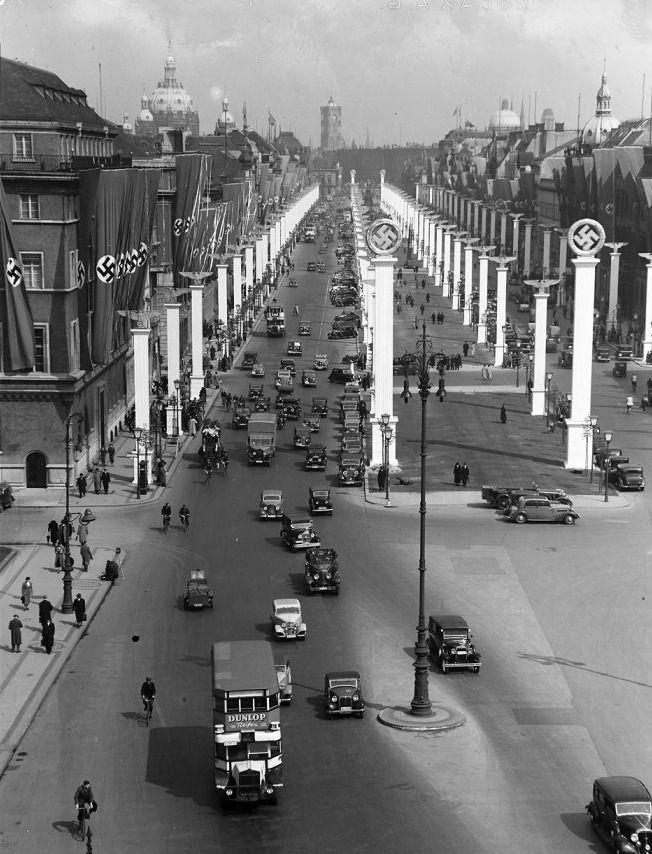
In retrospect, 1933 was an intensive period of personal, artistic, and cultural reckoning for Schoenberg. How was he meant to make sense of a world gone topsy turvy? In a 1948 article for The New York Times, Schoenberg professed that a return to tonality had always been vigorous in him, a force which he yielded to from time to time. Spring and Summer of 1933 was such a period for him. Before starting work on the Concerto for String Quartet and Orchestra—a free adaption of George Frideric Handel’s Concerto Grosso Op. 6 No. 7— he was working on an arrangement of a Cello Concerto by Matthias Georg Monn, Handel’s contemporary.
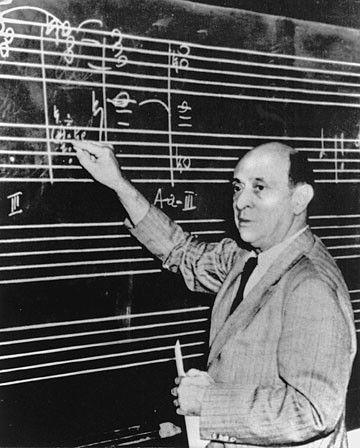




Programme Notes

Schoenberg - Concerto for String Quartet & Orchestra
In retrospect, 1933 was an intensive period of personal, artistic, and cultural reckoning for Schoenberg. How was he meant to make sense of a world gone topsy turvy? In a 1948 article for The New York Times, Schoenberg professed that a return to tonality had always been vigorous in him, a force which he yielded to from time to time. Spring and Summer of 1933 was such a period for him. Before starting work on the Concerto for String Quartet and Orchestra—a free adaption of George Frideric Handel’s Concerto Grosso Op. 6 No. 7— he was working on an arrangement of a Cello Concerto by Matthias Georg Monn, Handel’s contemporary.
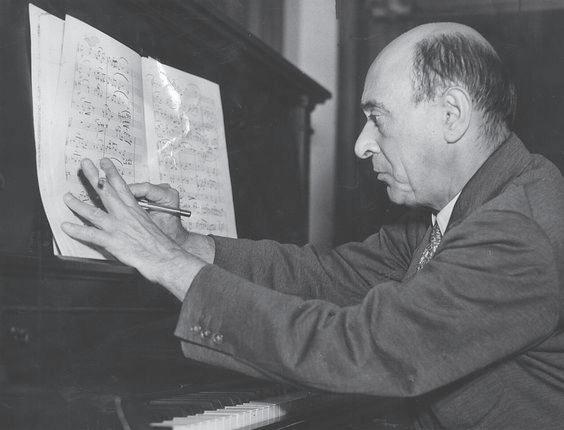



When working on the Georg and Handel free adaptations, he spoke of “removing the defects of the Handelian style… [getting] rid of whole handfuls of raslias and sequences, replacing them with real substance,” essentially bettering the work through his style and innovations. Perhaps this is a case of the unreliable narrator, or just the innate complexity of human thought. Schoenberg’s working on Handel’s composition coincided with the Nazi Party’s valorizing of Handel as the icon of Germanic idealism. Handel’s Aerian bloodline, classicism and harmonic cohesion could not have been a clearer juxtaposition to Schoenberg’s Jewish descent, and atonality. Society pitted them against each other, and Schonberg had to ‘Handel’ things in his own way—he needed to show that he could write just as well as Handel did, or even better.

Programme Notes

Rachmaninoff - Symphponic Dances, Op. 45
“It is true that music springs from a source in the individual which is deeper than any a surgeon has yet probed, and of which the artist himself may be unconscious, and it is from this source only that there emanates significant, living art.”
- Sergei Bertensson, from Sergei Rachmaninoff: A Lifetime in Music
To modern listeners, few composers come close to emulating the “quintessential Russian sound” as poignantly and beautifully as Sergei Rachmaninoff (1873–1943). This regard from posterity would have delighted Rachmaninoff, bringing a smile to his signature stoic countenance. Russia always had a special place in Rachmaninoff’s heart, which made his self-exile in light of the Russia Revolution an especially heart-wrenching decision. After departing Russia in December 1917, Rachmaninoff was never to set foot on his beloved homeland again.
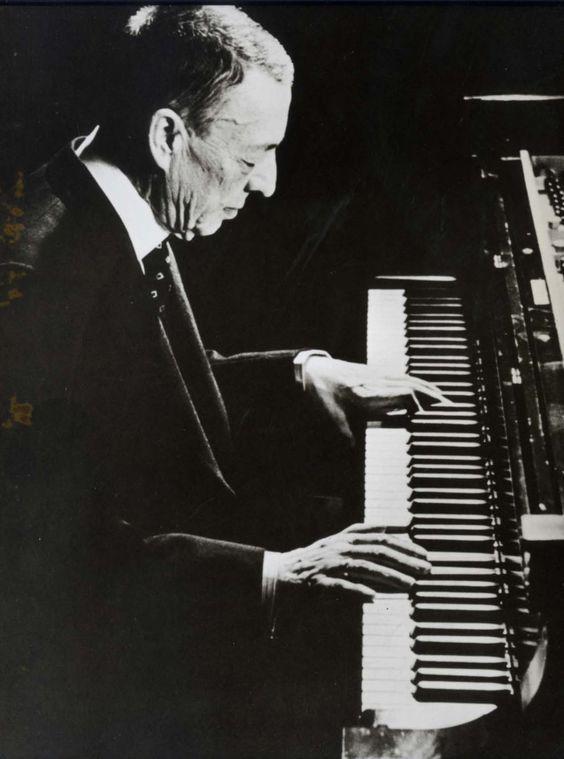



“I left behind my desire to compose: losing my country, I lost myself too,” lamented Rachmaninoff. America never felt like home to him, despite the immense popularity he received as a concert pianist. Between his demanding schedule of conducting major orchestras and piano recitals, he was able to make a decent living to pay the bills and support his family. What Rachmaninoff yearned most deeply for, however, was to compose. In the decade leading up to the writing of the Symphonic Dances, Rachmaninoff never penned a major composition.

Programme Notes

Rachmaninoff - Symphponic Dances, Op. 45
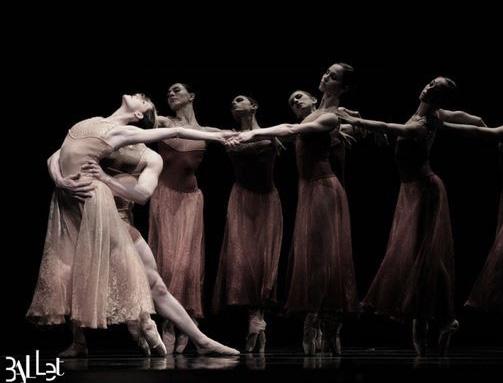
If his artistic inspiration sprang from a deep well of personal connection to Russia, it seemed as though that spring had gone dry with his departure. Perhaps realizing that this work was to be his last, Rachmaninoff began work on the Symphonic Dances just four years before what was to be his death. In this work, Rachmaninoff referred to musical materials and ideas from past compositions extensively, including his First Symphony, which was previously branded a public failure.

The spirit of “looking back” is especially poignant in realizing that Rachmaninoff had initially titled the three movements as “Noon”, “Twilight,” and “Midnight”— cryptically symbolic of his life stages. In “Midnight,” we face a final reckoning—the battle between life, represented through the “Alleluia” theme from All-night Vigil (Rachmaninoff’s 1915 composition), and death represented through his signature use of the Dies Irae motif. The “Alleluia” motif triumphs; it is as though Rachmaninoff finally grants himself the ‘happy ending’ that he had so dearly yearned for.
The Symphonic Dances was to be Rachmaninoff’s last major composition before succumbing to cancer three years later. Infused with some of the richest and most decadent ‘Russianness’, it is as though Rachmaninoff finally embarked on a spiritual return to his beloved homeland, a trip that he had been waiting only too long and earnestly for.




Musicians


First Violin
Ma Qicong, Concertmaster


Wu Tsai-Jou
Alyssa Goh Hui Yi
Xu Zhuorui †
Chien Hsin
Tsao Wei-Chun
Chang Chang-Yen
Zhong Yifan
Li Jiaqi
Hoi Khai-Weing
Bakhodir Rakhimov
Edgar Javier Lucena Rodriquez
Second Violin
Komila Izatulloyeva, Prinipal
Tan Xin Jie

Kuo Fang-Chen
Leonid Datsiuk
Syu Cheng-Yi
Feng Jiale
Foo Yue Ning
Zhang Hanzhi
Xu Zhuorui §
Qiu Zhengyi
Viola
Lee Wei-Fan, Principal †
Huang Yi, Principal §
Pao Yu-Lin
Lee Yizhi Jonathan ^
Lu Mina
Zheng Jingjing
Chan Shee Ann Shannon
Xiao Lei
Erlene Koh ^
Cello
Ho Chien-Yu, Principal
Zhao Leyan
Saran Charoennit
Cao Huiying
Chua Yi Jun Eugene
Guo Mingai
Chang Jia-Yun
Double Bass
Ng Lai Ting, Principal †
Julian Li, Prinipal ^§
Lee Si Yuan ^
Watcharapong Supatarachayawong
Yuan Moer
Guennadi Mouzyka *
† Schoenberg § Rachmaninoff ^Alumni/ Guest Musician *Yst Orchestral Institute Coach/ Yst Artist Faculty
Musicians
† Schoenberg § Rachmaninoff ^Alumni/ Guest Musician *Yst Orchestral Institute Coach/ Yst Artist Faculty




Flute
Lee Minjin, Principal †
Weng Yi-Chian, Principal §
Quek Jun Hao Julien
Piccolo
Weng Yi-Chian
Lee Minjin Oboe
Sho Yong Shuen, Principal †
Quek Jun Rui, Principal §
Ng Wei Xiang
English Horn
Sho Yong Shuen, Principal †
Quek Jun Rui, Principal §
Ng Wei Xiang
Clarinet
Ma Yi-Ting, Principal †
Chen Yan-Rung, Principal §
Chua Jay Roon
Bass Clarinet
Zheng Shanxi
Alto Saxophone
Michellina Chan ^
Bassoon
Xu Zixuan, Principal †
Javlon Khayitov, Principal §
Kong Xianzhang
Contrabassoon
Muhammad Afiq Bin Hussaini
French Horn
Kalia Diane Craig, Principal †
Chai Mei Qin, Principal §
Yen Shih-Hsin
Gao Xiaoxuan
Trumpet
Ravit Leelasiri, Principal †
Chen Hung-Shun, Principal §
Aw Ping Hui
Chou Hsin-Yu
Trombone
Huang Shao-Wei, Principal
Zhu Jianyu
Bass Trombone
Jennifer Stephanie Silva Coresma
Ng Jun Jie

Musicians




Tuba
Liu Jun-Jia, Principal
Timpani
Adam Sharawi Bin Amin Hussaini, Principal
Percussion
Jeremy Ng Chuan Kai, Principal
Lai Jo-Wei
Chayatorn Suwanpichaisi
Evelyn Kuo Chan
Kuo Yan-Shin
Isabel Chin Chun En
Harp
Vanessa Jazzy Wahyudy Irwanto, Principal
Piano
Edenia Maureen, Principal †
Chakrit Khanonvej, Principal §
 † Schoenberg § Rachmaninoff ^Alumni/ Guest Musician *Yst Orchestral Institute Coach/ Yst Artist Faculty
† Schoenberg § Rachmaninoff ^Alumni/ Guest Musician *Yst Orchestral Institute Coach/ Yst Artist Faculty
Our Benefactors
Ministry of Education
For their support in the establishment of a conservatory of music in Singapore




Yong Loo Lin Trust
Yong Siew Toh Endowment and Scholarship Fund
The Late Mr Rin Kin Mei and Mrs Rin Rin Collection String Instruments
Shaw Foundation Ones to Watch Concert Series
Singapore Totalisator Board Lee Foundation On Teng Cheong Professor of Music
Faculty, Students, Alumni of YST Conservatory
Steven Baxter Memorial Scholarship Fund
The Community Foundation of Singapore

S R Nathan Music Scholarship Endowment Fund
Prof Kwa Chong Guan and Ms Kwa Kim Hua
Mabel and Soon Siew Kwa Scholarship
Our Benefactors
Mdm Yong Liew Chin
Yong Liew Chin Music Scholarship

Mr Goh Geok Khim
Madeline Goh Professorship in Piano
Chenter Foundation
Chenter Foundation Cathy and Tony Chen Community Outreach Fund
Kris Foundation
Kris Foundation Viola Masterclass Fund
Mdm Ong Su Pin and Mr Mervin Beng
OKK Wind Prize
Mr Geoffrey Yu
Guy Hentsch Prize for Piano Performance




Ms Vivien Goh
Goh Soon Tioe Leadership Award
Dean’s Circle
Lifetime Ambassadors
Ms Gao Jun
Mr Geoffrey Yu
Mr Goh Geok Khim
Mr Goh Yew Lin
Mr Hamish McMillan Dyer
Ms Ong Su Pin & Mr Mervin Beng
Ms Phalgun Raju & Mr Nicholas A. Nash Mr Rin Kei Mei & Mrs Rin*
Mr Tan Kah Tee
Ms Vivien Goh
Mr & Mrs Willy Tan Kian Ping
Mr Whang Tar Liang
Dr & Mrs Yong Pung How
BinjaiTree
CapitaLand
Chenter Foundation
The Community Foundation of Singapore Far East Organisation*
Hong Leong Foundation* Keppel Corporation Limited Kris Foundation
Lee Foundation*

National Arts Council
Shaw Foundation
Singapore Airlines Ltd
Singapore Pools
Singapore Technologies Electronics Ltd
Singapore Technologies Engineering
Singapore Technologies Pte Ltd
Singapore Technologies Telemedia
Singapore Telecommunications Ltd Singapore Totalisator Board
Yong Loo Lin Holdings
Anonymous donor

* Founding Partners of the Singapore International Violin Competition



Dean’s Circle
Annual Members

Bowen Enterprises Pte Ltd
Prof Bernard Lanskey
Prof Christopher Cheng
Dr Dang Vu and Ms Oanh Nguyen Dr Guy Hentsch
Dr James C M Khoo Ms Kyin Nwe Moong Prof Lee
Eng Hin
Dr Paolo Adragna
Dr Robert Teoh
Instrument Donors




Mr Goh Yew Lin
Paul McNulty fortepiano
Mr Tan Kah Tee
Bösendorfer Imperial Model 290 Bösendorfer Johann Strauss
Instrument Collections
Family of the late Mr Leong Yoon Pin Leong Yoon Pin Manuscripts
The late Mr S R Nathan Digital Music Resources from the Madras Music Academy
Mr Nicholas Zaklama Oboe Resources
Acknowledgements
Orchestral Institute and Ensembles




Programming & Productions
Tang I Shyan
Benny Lim
Vice Dean of Ensembles
Brett Stemple
Orchestra Manager
Yap Ziqi
Assistants
Edgar Javier Lucena Rodriguez
Foo Yue Ning
Hoi Khai Weing
Quek Junv Rui
Quek Jun Hao Julien
Sho Yong Shuen
Xiao Lei
Alison Wong
Mike Tan
Communications & Engagement
Ong Shu Chen
Marketing & Communications
Faezah Zulkifli
Creative Curation Team Publication


Chua Jayroon
Neo Jie Ning
Lin Xiangning



























